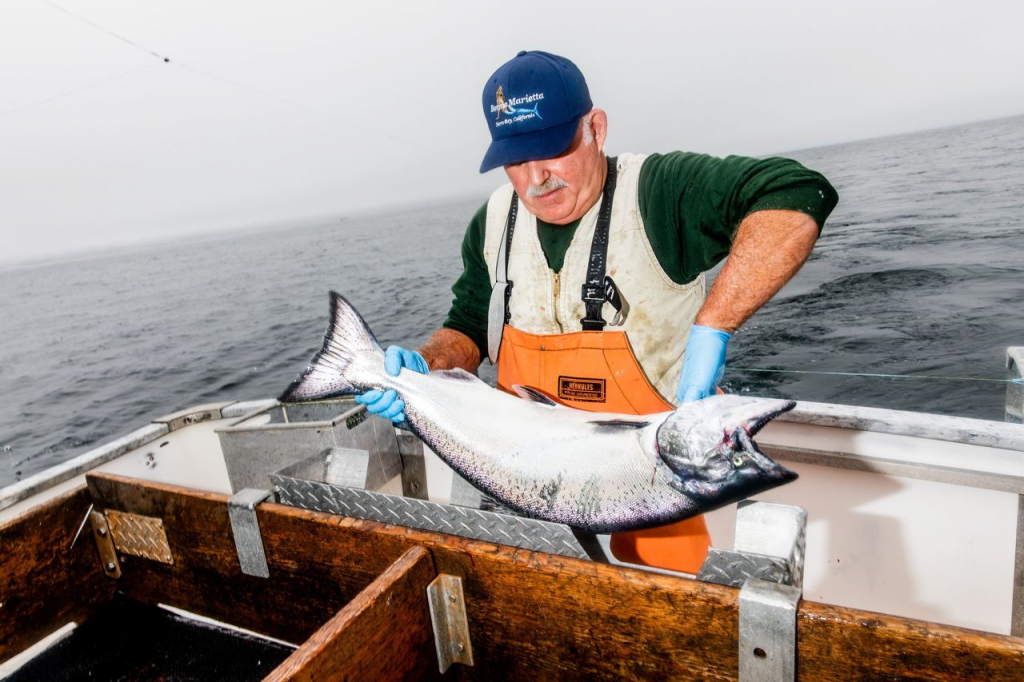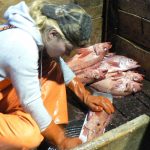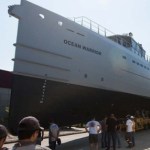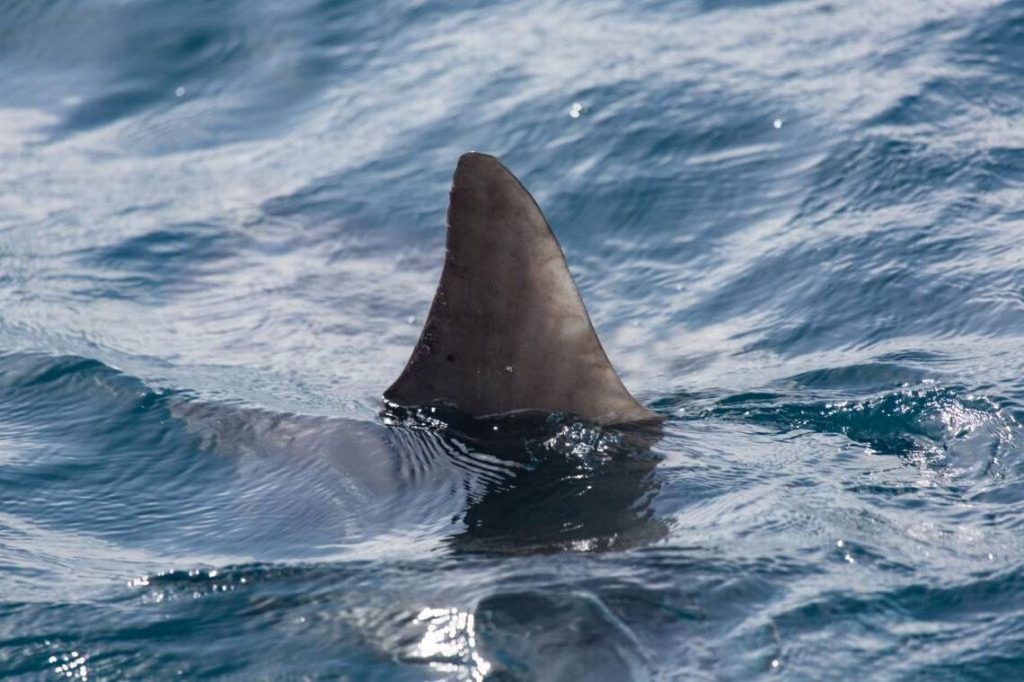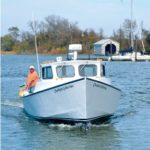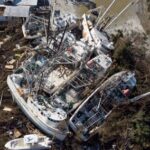Tag Archives: Maine Lobstermen’s Association
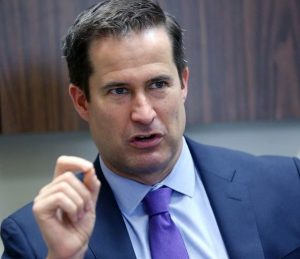
Moulton praises local lobsterers for staying at whale rule table at a teleconference they were’nt invited to
U.S. Rep. Seth Moulton on Monday called the Maine Lobstermen’s Association shortsighted for stepping away,,, “It limits their involvement in the solution going forward,” Moulton said on a teleconference organized by the International Fund for Animal Welfare.,,, Monday’s teleconference was billed as an opportunity,,, The sole discussion on technology Monday centered on ropeless fishing gear. The panel, included two IFAW staffers and Rob Morris, a sales engineer with EdgeTech, a company that has developed a ropeless gear fishing system. No fishermen were represented. “We did not extend an invitation,” Ramage said. >click to read< 08:08
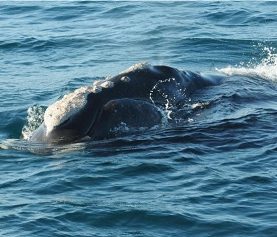
Maine lobster group blames Canada for most right whale deaths, injuries. Perhaps its the data doing the blaming.
McCarron claims Maine lobstermen were pressured to reach an agreement to avoid “jeopardy” from a pending and separate NOAA review of right whale risk-reduction measures for the lobster fishery, a process known as a “biological opinion.” A NOAA spokesperson said a statement from the agency that will respond to the Maine Lobstermen’s Association concerns is expected Thursday.,,, Canadian and American environmentalists expressed disappointment,,, >click to read< 10:11

IFAW Officials Disappointed with Lobsterman Association’s Position on Whale Issue
The Yarmouth Port-based International Fund for Animal Welfare is expressing disappointment for the Maine Lobstermen’s Association decision to withdraw its support for the Take Reduction Team Agreement concerning right whales. The association withdrew support last week due to what it calls “serious flaws in the data” presented during the agreement process.,, The MLA review of the data also found that current whale protection measures have been effective. Changes to the right whale plan in 2009 and 2014 resulted in a strong downward trend in the incidence of entanglement cases involving U.S. lobster gear, from seven cases prior to 2010 to only one case since then. >click to read< 12:40
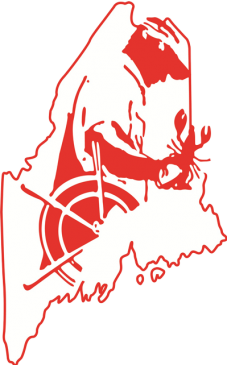
MLA Withdraws from TRT April 2019 Agreement Due to “serious data flaws”
On August 30, the Maine Lobstermen’s Association (MLA) sent a letter to Chris Oliver, head of NOAA Fisheries, withdrawing support for the April 2019 Take Reduction Team (TRT) agreement due to serious flaws in the data presented to the TRT and in the agreement process. The TRT agreement calls for Maine lobstermen to reduce its risk to right whales by 60%. “Following the TRT meeting, MLA undertook a careful review of data available from NMFS, due to unresolved concerns with the timeliness and accuracy of information provided to TRT members,” said Patrice McCarron, MLA executive director. >click to read< 08:34
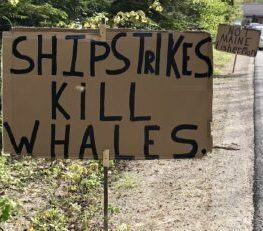
Lobstermen, environmentalists weigh in on right whale rules
Some of the largest and most powerful animal and environmental groups – including the Pew Charitable Trust, the U.S. Humane Society, the Conservation Law Foundation and Oceana – sent representatives to the hearing. They urged National Marine Fisheries Service to take immediate action to protect the whale, including proposals that even the team tasked by the fisheries service to come up with its whale protection plan had dismissed, such as offshore closures and ropeless lobster fishing. >click to read< 20:58
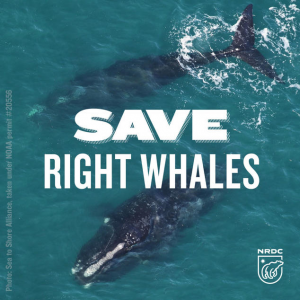
Are the ENGO’s pushing propaganda to pressure your Representatives and sway the public against you?
From the article: What evidence is there that Maine contributes towards right whale entanglement? The Maine congressional delegation has also suggested that the state’s fisheries do not contribute to right whale entanglements. Yet, Maine has almost three million licensed traps and logic dictates the high density of vertical lines associated with those traps poses a significant risk of entanglement. An encounter between a whale and even a single vertical line can result in a deadly entanglement. >click to read< Who supports these ENGO’s, anyway!

Mills’ stand on fishing rules praised by lobster industry
As Executive Director of the Maine Lobstermen’s Association (MLA), I applaud Gov. Mills’ July 11 Message to Maine’s Lobster Industry acknowledging the federal government’s “disturbing lack of evidence connecting the Maine lobster industry to recent right whale deaths.”,,, What is often lost in this debate is that the population of North Atlantic right whales was only 295 in 1997 when federal regulators first required U.S. fishermen to implement conservation measures. In the ensuing years, the right whale population increased to more than 450 whales. >click to read< 11:17
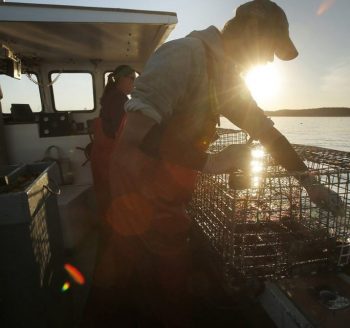
Mills comes out against ‘foolish’ federal regulations to protect right whales
Gov. Janet Mills is directing the Maine Department of Marine Resources to come up with an alternative to a federal plan to protect the endangered right whale from the state lobster industry, saying she won’t allow “foolish” regulations to make life harder for the state’s fishermen.,,, Some fishermen complained that it took Mills too long to come to their defense, and some worried her feisty tone might prompt federal regulators to take even more drastic action to protect the right whale, but many welcomed the support from the Blaine House. “It’s nice to know the governor was listening to us,” said Cutler lobsterman Kristan Porter, the head of the Maine Lobstermen’s Association. >click to read< 18:30
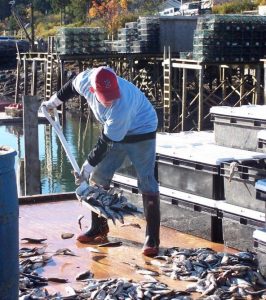
Herring cuts another headache for lobstermen
Maine lobstermen are catching it coming and going, but the “it” ain’t lobsters. Last month, the lobster industry found itself confronted with a demand from federal fisheries regulators that it reduce the risk it posed to endangered right whales by 60 percent and began the arduous task of figuring out how to remove half the vertical buoy lines attached to lobster traps from the water. Though it came as no surprise, earlier this month the New England Fishery Management Council announced that the already scant amount of herring allowed to be caught off the coast of New England would be further reduced in 2020 and 2021. >click to read<11:34
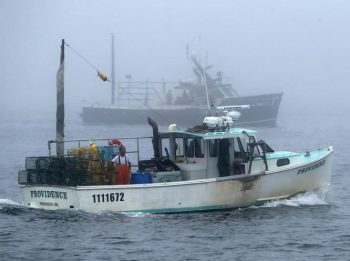
Meetings Begin On New Lobster Gear Rules To Protect Right Whales
Maine lobstermen will meet with state marine resources officials in Trenton Tuesday evening to consider coming regulations that could force the industry to reduce by half the amount of fixed-gear trap rope placed in the ocean.,, Kristan Porter, president of the Maine Lobstermen’s Association, says it’s a difficult but attainable goal, whether through reducing actual per-boat trap numbers or by sinking more traps per line in the water.,,, Tonight’s meeting of the Lobster Zone B Council starts at 6 p.m. at the Trenton Elementary School. The Department of Marine Resources has scheduled such meetings in each of the state’s seven lobster zones over the course of this month. >click to read<12:21
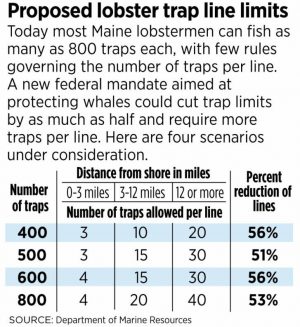
New rules are meant to save whales; lobstermen wonder if they’ll survive
The state Department of Marine Resources has until September to come up with a way that it can cut the number of buoy lines in the Gulf of Maine by 50 percent. Federal regulators say that’s what it will take to reduce the risk of fatal entanglement enough for the species to survive. Scientists estimate only 411 right whales remain. The species has been on the brink of extinction before, most recently in 1992, when its population bottomed out at 295. It rebounded to about 500 in 2010, but low calving rates, ship strikes and fishing line entanglements have sent its numbers tumbling, yet again. But many in Maine’s $485 million industry worry it is the lobsterman who will face extinction,,, >click to read<10:28

Maine lobster fishery agrees to deep cuts to protect whales
After a long and difficult week in late April in which the National Oceanographic and Atmospheric Administration’s Marine Mammal Take Reduction Team met to address protections for the endangered right whale, the Maine lobster fishery now has a sense of what the future holds. There were some hard battles along the way, in which we lobster industry advocates fought to ensure a viable Maine fishery, both for today’s lobstermen and for future generations. By Patrice McCarron >click to read<14:39
Competing interests – “The farmer and the cowman should be friends,” according to Richard Rodgers’ lyrics in “Oklahoma!” Can a similar peace pact be visited upon Maine’s lobstermen and the advocates of whale safety? >click to read<

Halving the number of vertical lines – Finding consensus on whale protections a tough call in Maine
Federal regulators have given Maine’s lobster industry its marching orders: Find a way to cut the number of surface-to-seabed fishing lines by 50 percent to help prevent the injury or death of even one of the endangered right whales that pass through the Gulf of Maine. The National Marine Fisheries Service is allowing each lobstering state to develop its own plan to protect the whale, whose numbers have fallen to a little more than 400 in recent years. But it will be hard to find one way to make it work in Maine, where the $485 million-a-year fishery is known for its diversity. >click to read<07:29
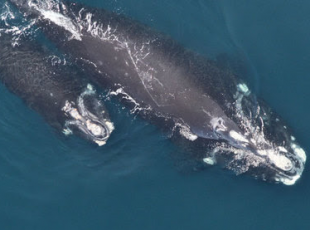
North Atlantic Right Whale – New restrictions placed on New England fishing industry to protect whales
Fishermen across New England are facing new restrictions after a panel of experts convened by the federal government agreed on Friday to a plan to step up protection of the endangered North Atlantic right whale. The group of federal and state officials, scientists, fishermen and environmental advocates created by the National Oceanic and Atmospheric Administration capped a four-day meeting in Providence by reaching consensus on a plan that aims to reduce entanglements in fishing gear, which is the leading cause of injuries to the whale and deaths. >click to read<18:20
New England Stakeholders Agree On Recommendations For Reducing Risk Of Right Whale Entanglements – >click to read<11:16
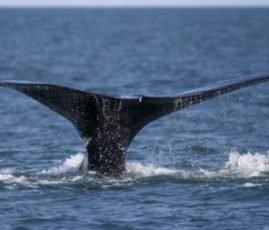
Jared Golden asks feds to delay fishing restrictions that aim to protect whales
U.S. Rep Jared Golden, a Democrat who represents Maine’s 2nd District, on Tuesday asked federal officials to reconsider regulations meant to protect North Atlantic right whales. Maine lobstermen say the proposed changes would significantly harm their livelihoods. Golden said in a release that he is “deeply troubled” by the manner the Atlantic Large Whale Take Reduction Team (TRT) plans to reduce right whale mortality by 60 percent to 80 percent, and by “the impact its actions may have on the future viability of our lobster fleet.” >click to read<22:50
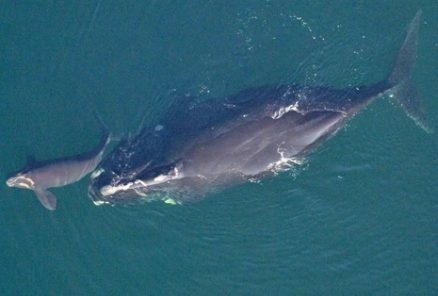
Regulators unveil new tool designed to help reduce right whale entanglements
Federal fisheries regulators demonstrated a new risk-assessment tool on Tuesday aimed at helping the survival of the North Atlantic right whale. It comes on the eve of regulatory decisions that could affect the fate of the endangered species — and the lobster industry, as well. Federal scientists said the new data model should help lobstermen and conservationists make collaborative decisions about reducing dangers that fishing gear poses for the endangered. >click to read<12:49
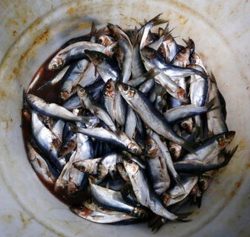
Bait crisis could take the steam out of lobster this summer
Members of the lobster business fear a looming bait crisis could disrupt the industry during a time when lobsters are as plentiful, valuable and in demand as ever. America’s lobster catch has climbed this decade, especially in Maine, but the fishery is dependent on herring,,, The loss of herring is also a heavy blow to the fishermen who harvest the species, said Jeff Kaelin, who works in government relations for Lund’s Fisheries, a herring harvester based in Cape May, New Jersey. >click to read<13:18
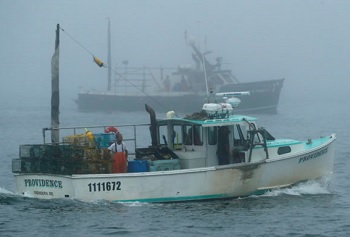
Despite a banner year, looming bait crisis leaves plenty of Maine lobstermen anxious
Patrice McCarron, executive director of the Maine Lobstermen’s Association, is worried about the severity of herring restrictions imposed by the federal government after the species failed to reproduce in sustainable numbers last year. “It’s about as bad as we can imagine, but we don’t yet know what it’s going to translate to for the fishermen,” McCarron said. McCarron said that Maine fishermen face a shortage of some 50 million pounds of bait in the coming season. “We’re seeing an 84 percent reduction in that particular source of bait, so we’ll have less than 5,000 metric tons, which will probably be caught in a week, in one week,” she said.>click to read<12:04
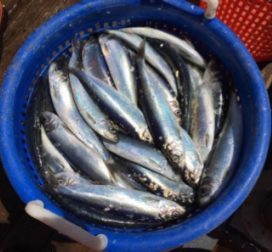
Cut in herring quota bodes ill for lobster
Imagine running a trucking business and having your supply of diesel fuel cut by70 percent. For all practical purposes, that’s what happened to the Maine lobster industry last week. On Thursday, the National Oceanic and Atmospheric Administration’s fisheries arm announced that it was cutting the 2019 herring quota by about 70 percent. That’s bad news for lobstermen. While diesel oil is the fuel that powers most lobster boats, herring is the fuel that powers the Maine lobster industry. Herring is the most popular bait used in the Maine lobster fishery and with the cut in the herring quota from about 110 million pounds last year to about 33 million pounds this year, bait is going to be scarce, and expensive. >click to read<22:16
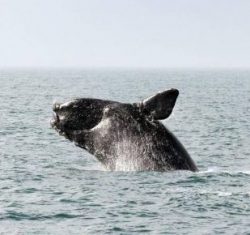
Atlantic Lobster Board Moves Toward Reducing Rope In Effort To Save Right Whales
A consortium of Atlantic states fisheries managers is calling for broad changes to the gear lobstermen use, in an effort to reduce risks posed to the endangered North Atlantic right whale and to ward off potential federal action that could be even more challenging for the industry. At a meeting of the Atlantic States Marine Fisheries Council in Virginia, its lobster board voted unanimously to set in motion the process that could lead to major changes in the East Coast’s lobster industry. >click to read<12:43
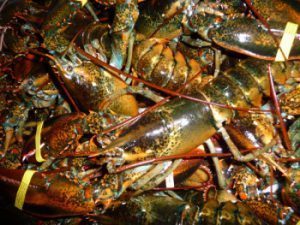
Lobstermen in Maine ready for debate over license wait list
There are few things in Maine as coveted as a lobster fishing license, and a proposal to bring dozens of people off the state’s license waiting list has fishermen in the state ready for a debate. More than 200 people are waiting in the wings for a lobstering license, which has long been a ticket to the middle class for working coastal Mainers. But a proposal before a state legislative committee would bring new people into the fishery who have been waiting for 10 or more years. >click to read<12:40

Whale rule changes coming on two tracks
Maine lobstermen and their representatives, along with state fisheries regulators, continue in the trenches of debates about how much the Maine lobster fishery is implicated in the decline of the North Atlantic right whale. Ongoing efforts to protect the whales from entanglement with fishing gear may result in two different new sets of regulations, Sarah Cotnoir, resource coordinator for the Maine Department of Marine Resources, and Patrice McCarron, executive director of the Maine Lobstermen’s Association, told the Zone B Council last week. >click to read<11:03

Maine fisheries groups support DMR Commissioner Keliher
In what must be a first in modern history, virtually every commercial fishing organization in Maine joined together to urge Governor-elect Janet Mills to keep Patrick Keliher on the job as commissioner of Marine Resources after she takes office in January. First reported in the Maine Lobstermen’s Association’s Landings, shortly after the election, the MLA, Downeast Lobstermen’s Association, Maine Coast Fishermen’s Association, Maine Aquaculture Association, Alewife Harvesters of Maine, Maine Elver Fishermen Association and the Independent Maine Marine Worm Harvesters Association signed a letter to Mills voicing the organizations’ unanimous support for the current DMR commissioner. >click to read<18:08
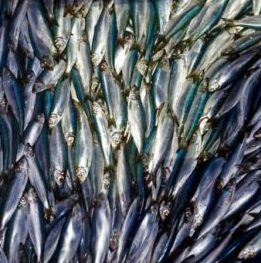
New protections for herring but lobster bait crunch imminent
Fishing managers are considering extending new protections to Atlantic herring, but catch quotas for the important bait fish are still likely to plummet before the end of the year, which is bad news for the American lobster industry.,, An arm of the Atlantic States Marine Fisheries Commission voted last month to initiate changes to try to better protect spawning herring off of New England.,, Lobstermen in Maine, the biggest lobster-fishing state, are on edge waiting for the news, said Kristan Porter, president of the Maine Lobstermen’s Association. >click to read<13:43
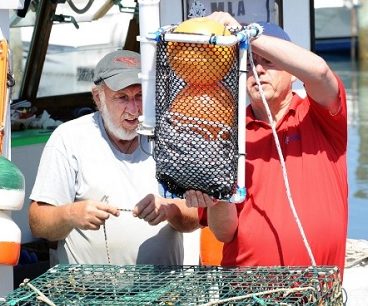
Ropes are latest flashpoint in tug of war over right whales
The lobster industry is willing to consider switching to weaker rope to protect the endangered right whale from deadly entanglements, but whale defenders say that doesn’t go far enough to help a species that can’t bear even one more death. A team of scientists, regulators, animal rights groups and fishermen met this week in Providence to review proposals,,, The team is advising the National Marine Fisheries Service on how to prevent whales from getting entangled in fishing gear as they migrate, feed and mate as they travel back and forth along the East Coast of the United States and Canada. >click to read<11:54

NOAA Scientists Admit Finding In Recent Right Whale Report Just A Hypothesis
Federal fishery regulators are taking back their claim that newer lobster fishing gear is harmful to North Atlantic right whales.,, They found a 2015 rule requiring less traps with stronger fishing line is making entanglements of right whales worse. However, the agency said that statement is actually not based on science. Patrice McCarron, executive director of the Maine Lobstermen’s Association, said the report is still flawed. >click to read<11:52

Lobster industry blasts proposed regulations intended to protect whales
Maine officials and members of the state’s lobster industry are blasting a new federal report on the endangered right whale, claiming it uses old science to unfairly target the fishery for restrictions.
The Maine Department of Marine Resources, the agency that regulates the $434 million lobster fishery, and the Maine Lobstermen’s Association, the trade group representing Maine’s 4,500 active commercial lobstermen, question the scientific merits of the report from the Northeast Fisheries Science Center, which was issued in advance of next week’s meeting of a federal right whale protection advisory team. “They’re painting a big target on the back of the Maine lobster industry, but the picture isn’t based on the best available science,” DMR Commissioner Patrick Keliher said Thursday. >click to read<09:34

Trawl limit in Blue Hill Bay not an end to cross-zone fishing issue
A possible compromise with Zone B lobstermen over the boundary lines of a new five-trap trawl limit occupied a Zone C lobster council meeting October 1, the day the rule went into effect. The trawl limit covers a Zone B that is also fished by Zone C license holders, about six miles off Frenchboro around Mt. Desert Rock. A Zone B-proposed boundary line change would move the trawl-limit area from the west side to the east side of the rock. Zone B council initiated the trawl limit rule change because they “were getting boxed out by trawls,” Maine Department of Resources Lobster Council Liaison Sarah Cotnoir said,,, >click to read<14:42

Lobsterman fear bait shortage with herring quota cut
At the height of the season, Brooklin lobsterman David Tarr spends $600 to $800 a day to bait his traps with herring, pogies or redfish. While some Maine lobstermen swear by herring, Tarr is willing to play the field based on price and availability. Unlike most of his peers, Tarr also has the luxury of a personal bait cooler, which allows him to buy bait when the price is right, salt it himself and store up to 200 barrels of it away — $40,000 of bait, enough for a half-season of fishing — for use during tough times. On Wednesday, one day after the New England Fisheries Management Council voted to recommend slashing the yearly herring quota by 80 percent, Tarr figures tough times are coming. “At a certain point, it is just not worth it,” Tarr said. “I won’t go fishing just to pay for my bait.”>click to read<14:03

New England Fishery Management Council scale back Atlantic herring catch
The New England Fishery Management Council unanimously approved a new management approach that will dramatically cut the catch limits for herring over the next three years, but the regulatory board stopped short of temporarily shutting down the fishery, as one option on the table would have required. The new rules adopted by the council, which put in place a formula for setting annual catch limits, were applauded by some environmental advocates as recognition of the fish’s key role in the larger ocean ecosystem. But the decision was made over the objections of groups representing commercial fishing boats that catch herring and lobstermen who use the fish as bait. >click to read<08:02


































